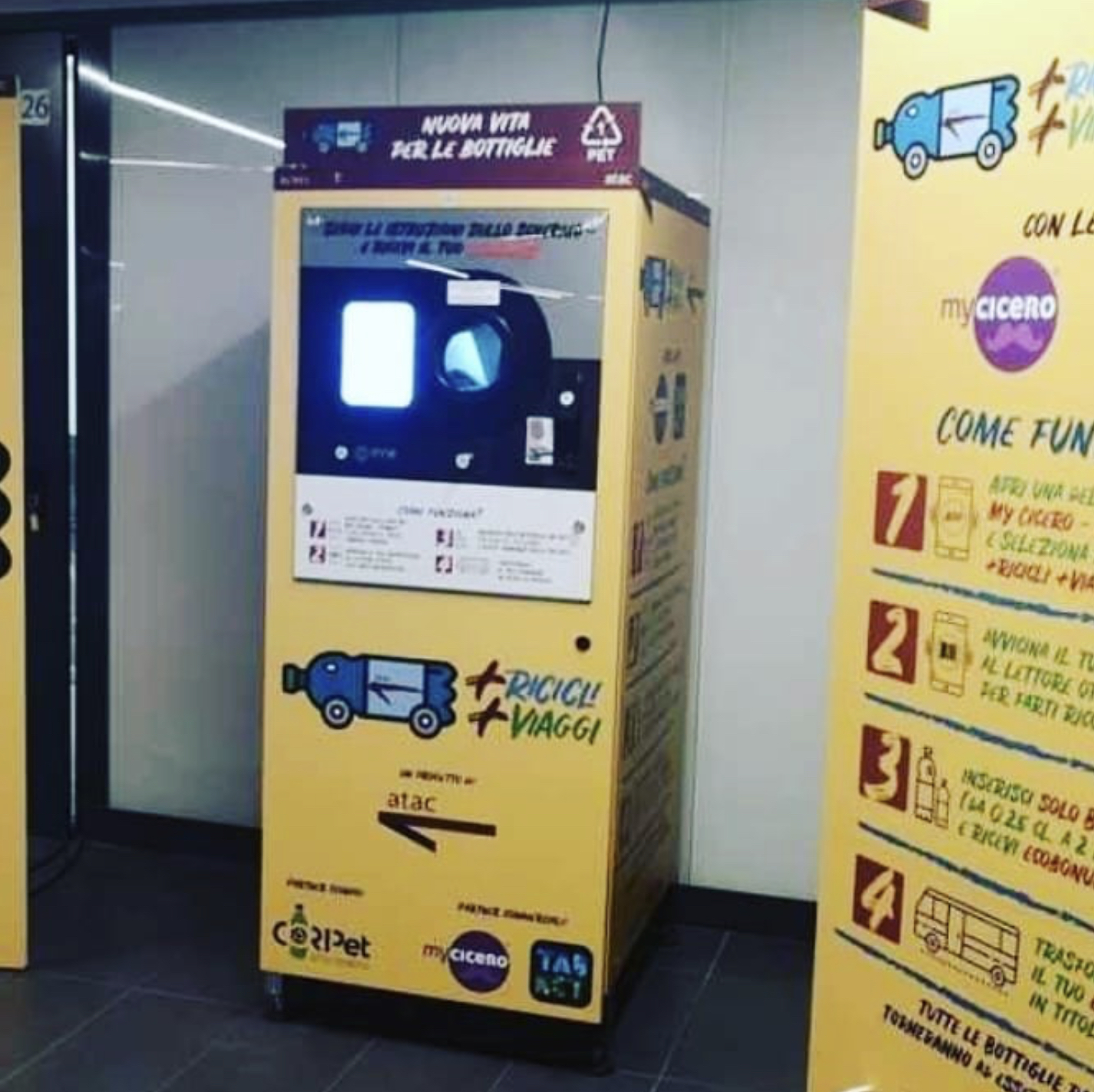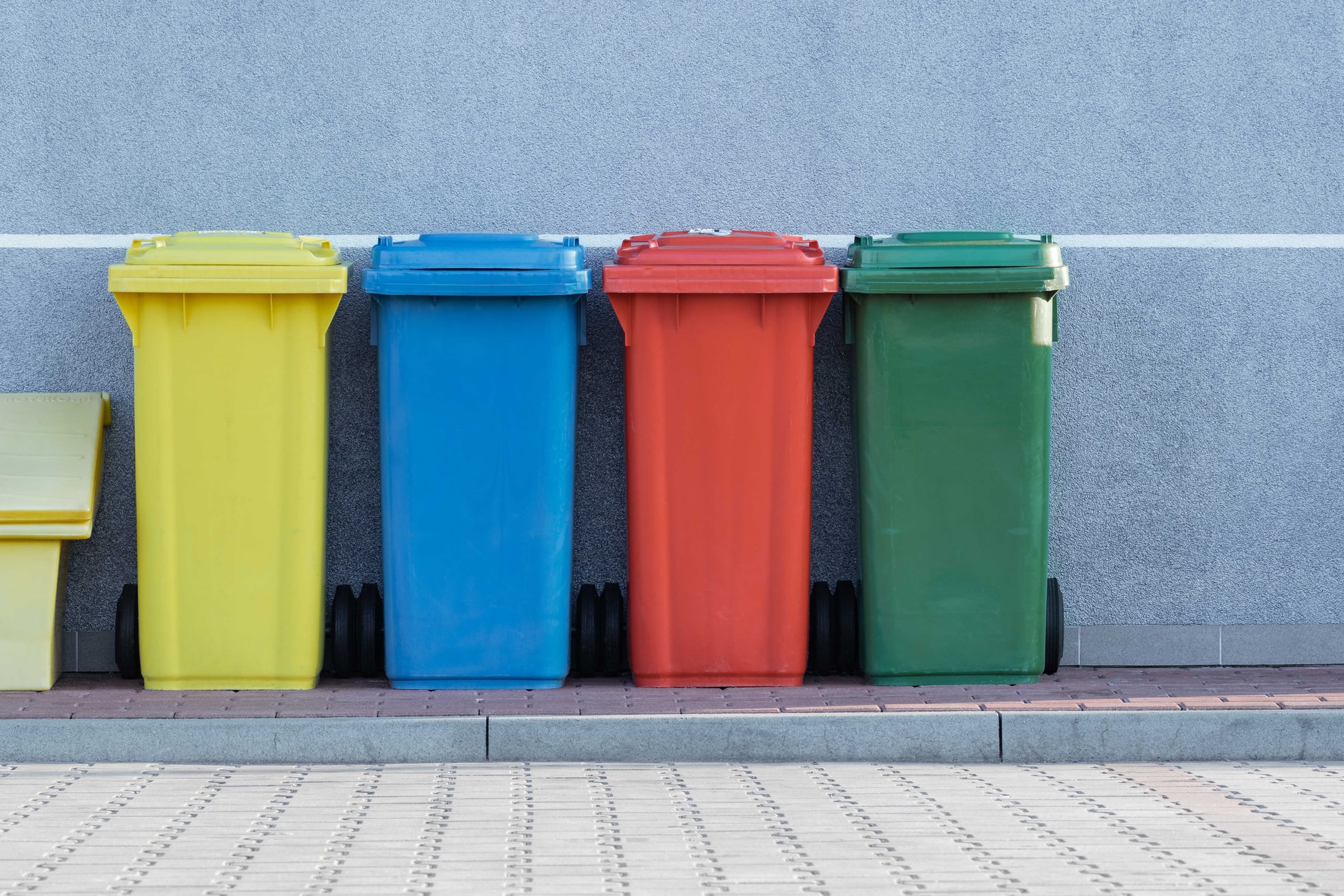- Inspiring People -
- 3mins -
- 1,060 views
In Rome You can Pay Bus & metro tickets by recycling plastic bottles
Commuters in Rome who recycle plastic bottles at metro stations can accumulate credits for the purchase of bus and metro tickets through apps on their phones.
Rome Trials Recycling Plastic Bottles in Exchange for Transit Cash
The experimental ecobonus system — whereby commuters in Rome who recycle plastic bottles at metro stations can accumulate credits for the purchase of bus and metro tickets through the MyCicero and TabNet apps. — will be in place for one year at three metro stations: Cipro on the A line, Piramide on the B line, and S. Giovanni on the C line.
For each plastic bottle recycled, commuters will receive a credit of five cents, meaning if they recycle 30 bottles they receive a free €1.50 ticket.
Hailing the new system, Rome’s mayor Virginia Raggi said the capital was the first city in Italy, and among the first in Europe, to promote the environmentally-friendly initiative.
Source: WantedInRome.com

Rome: transit cash for plastic trash
The city of Rome unveiled three test machines Tuesday around metro stations where passengers can drop plastic water bottles, receiving five cents apiece through a scan on their phones.
According to Rome’s transportation authority ATAC, the money goes to passengers’ accounts in partner apps MyCicero or Tabnet, which can be redeemed for public transportation.
ATAC President Paolo Simioni said on Wednesday that "in a period in which cryptocurrency is talked about, we have plastic currency. Substantially, it’s a system in which one recycles, we build customer loyalty and citizens’ virtuous behaviour is rewarded."
Source: NewYorkTimes/AP

Deposit return schemes elsewhere in Europe
Deposit return schemes (DRS)ensure that single-use plastic bottles are collected, instead of being discarded. Therefore, DRS can significantly contribute to the implementation of the upcoming EU single-use plastic directive. Additionally, DRS bring in fiscal and economic benefits that complement the environmental one. For example, producers can lower their production cost by using recycled materials, which is cheaper than extracting and processing new ones.
In Europe, until now, 10 countries have already implemented deposit return schemes:
- Croatia
- Denmark
- Estonia
- Finland
- Germany
- Iceland
- Lithuania
- Netherlands
- Norway
- and Sweden.
All of which have achieved significant results. The least successful country is Estonia, with an 82.7% total return rate – including can, PET and glass – which is already higher than many countries in Europe.
The most successful example in Europe is Norway, with an impressive 97% recycling rate for plastic bottles.
Germany also has very high results, as it has the highest population and a broad DRS scope, targeting glass, plastic (mostly PET) and metal (aluminium) with 98.4% total return rate. The system was implemented by the ministry of environment in 2003 with a €0.25 fee per item, whether it is glass, metal or plastic.
Source: GovernmentEuropa.eu

